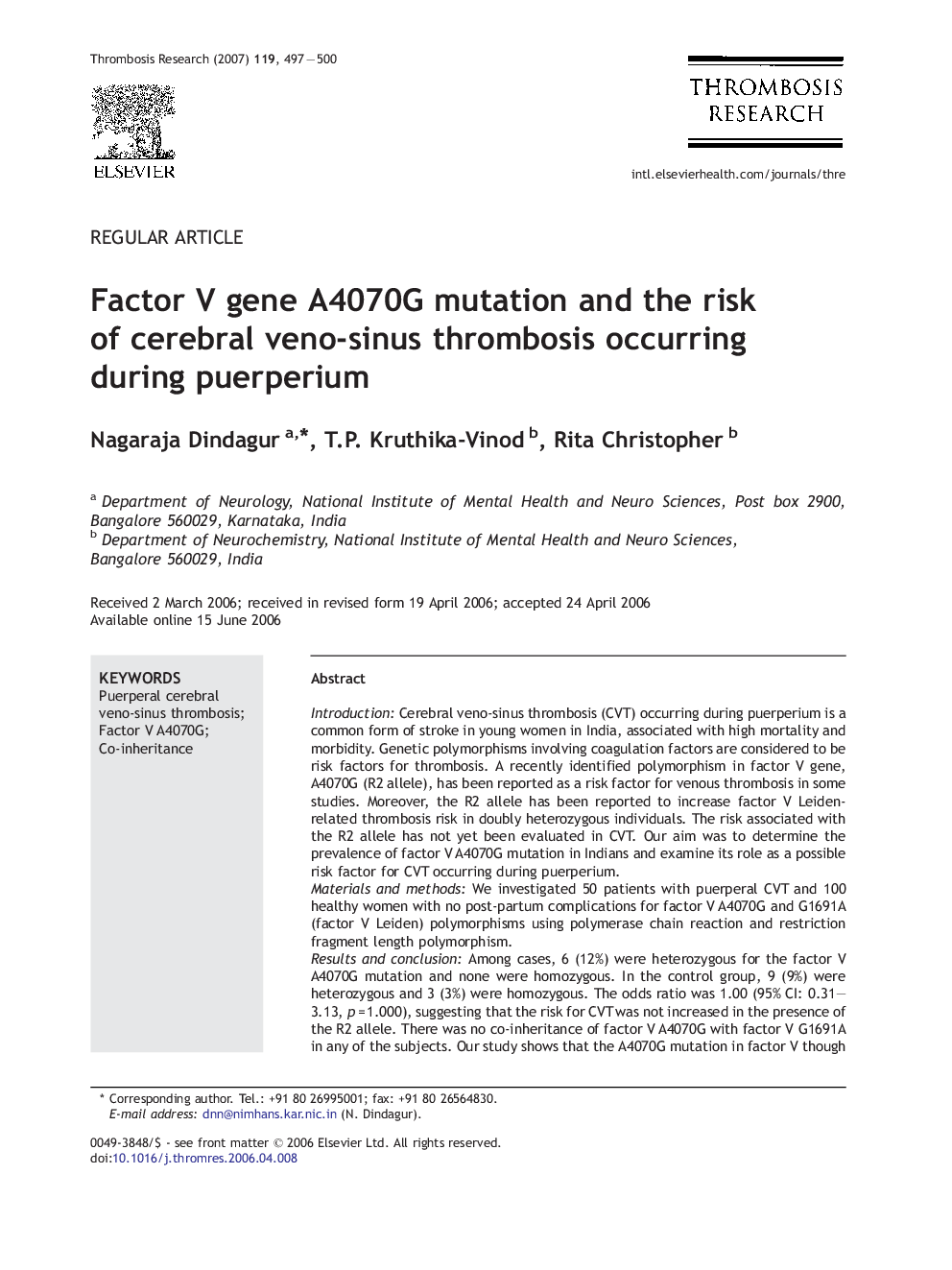| Article ID | Journal | Published Year | Pages | File Type |
|---|---|---|---|---|
| 3030093 | Thrombosis Research | 2007 | 4 Pages |
IntroductionCerebral veno-sinus thrombosis (CVT) occurring during puerperium is a common form of stroke in young women in India, associated with high mortality and morbidity. Genetic polymorphisms involving coagulation factors are considered to be risk factors for thrombosis. A recently identified polymorphism in factor V gene, A4070G (R2 allele), has been reported as a risk factor for venous thrombosis in some studies. Moreover, the R2 allele has been reported to increase factor V Leiden-related thrombosis risk in doubly heterozygous individuals. The risk associated with the R2 allele has not yet been evaluated in CVT. Our aim was to determine the prevalence of factor V A4070G mutation in Indians and examine its role as a possible risk factor for CVT occurring during puerperium.Materials and methodsWe investigated 50 patients with puerperal CVT and 100 healthy women with no post-partum complications for factor V A4070G and G1691A (factor V Leiden) polymorphisms using polymerase chain reaction and restriction fragment length polymorphism.Results and conclusionAmong cases, 6 (12%) were heterozygous for the factor V A4070G mutation and none were homozygous. In the control group, 9 (9%) were heterozygous and 3 (3%) were homozygous. The odds ratio was 1.00 (95% CI: 0.31–3.13, p = 1.000), suggesting that the risk for CVT was not increased in the presence of the R2 allele. There was no co-inheritance of factor V A4070G with factor V G1691A in any of the subjects. Our study shows that the A4070G mutation in factor V though highly prevalent in the Indian population is not associated with an increased risk of CVT occurring during puerperium in Indian women.
